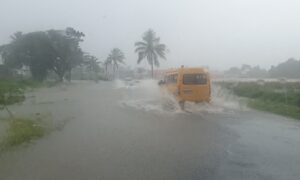Fiji’s Parliament has passed the country’s 2025-2026 national budget following a late sitting that extended beyond 10pm last night.
The 2025–2026 Budget was passed with 36 Members of Parliament voting in favour and 12 against, concluding a week-long debate on the government’s spending and revenue plans for the year ahead.
The Coalition Government’s $4.8 billion fiscal plan focuses on easing the cost of living, strengthening public services, and responding to new social challenges, including drug abuse and the rising threat of HIV infections.
It includes major investments in education, health, infrastructure, and welfare support — but also comes with widened deficit of $886 million and a projected decline in VAT collections.
The budget outlines several key measures aimed at easing household costs, including a reduction in the Value Added Tax (VAT) from 15% to 12.5% from 1 August 2025, and the continuation of zero-rated VAT on 22 essential food and household items.
There are also duty reductions on everyday goods such as chicken portions, frozen fish, and tomato sauce. A 3% pay rise for civil servants, a 5% increase in welfare payments, $200 in back-to-school assistance per student, and electricity and transport subsidies are among the other notable provisions.
Operating expenditure is budgeted at $3.91 billion, while capital investment totals $926.6 million.
Despite revenue projections of $3.95 billion — a slight increase from the previous year — total tax collections are expected to decline due to the relief measures, prompting a ramp-up in compliance efforts, including stricter VAT monitoring and new requirements for mobile wallet and e-wallet users.
To finance the deficit, the government will rely on a combination of domestic borrowing and concessional loans from external partners. Public debt is expected to increase to $11.7 billion, or 79.8% of GDP, by July 2026.









